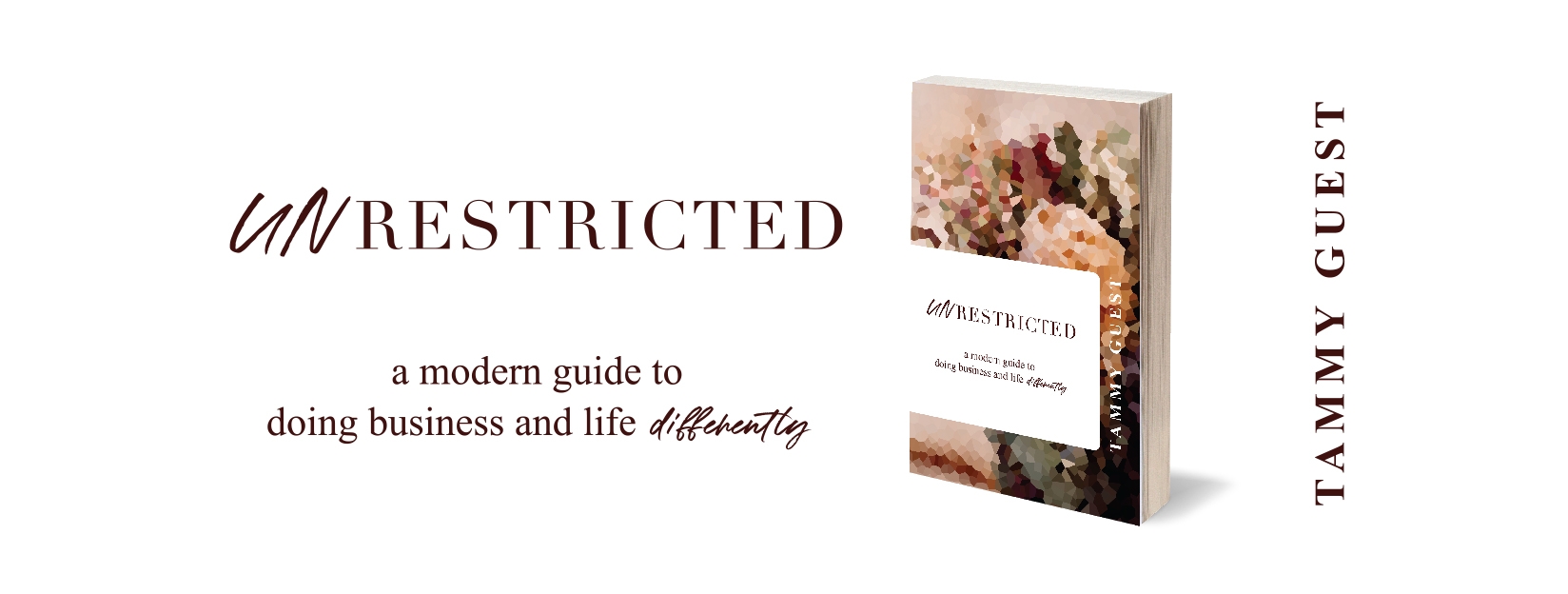I’m super excited to have Denise Duffield-Thomas with me today to talk to you about one of the issues that our tribe always gets stuck on – PRICING.
Issues with pricing come up time and time again for praccies so I wanted to bring this conversation out into the open. And, who better to help me do that than money expert, Denise Duffield-Thomas. She’s a genius at uncovering our inner money blocks that are affecting our pricing.
This is one of my favourite conversations have with the Natupreneur community because I definitely had all of these issues in the beginning of my business journey, and I want to help you overcome them as well. Let’s dive in…
Pricing Mistakes Affecting Your Business
Pricing by Committee
Number one biggest mistake – pricing by committee.
D: This is a tricky one especially when you’re in an industry where people charge in similar amounts. So you start in your practice and you look at what other people are charging. Then, you always put yourself in an imaginary pecking order. You think:
- That person seems like they’re a bit smarter than me
- This person has been doing it than me longer than me
- They do Facebook
- That one is prettier
So you start ranking yourself and then you price accordingly.
The problem with that is is that a lot of industries have collective money blocks. I believe that the health industry is one of those industries that has very strong collective money beliefs that:
- we’re not allowed to charge well for what we do
- this should be free
- we have to help everybody at the lowest possible price
All those kind of things.
And there’s a lot of guilt around pricing. So when you rank yourself and look at what everyone else is charging, you are taking on all of their money blocks as well as buying into the collective money blocks of the health industry. So that’s a problem – that’s a huge problem.
The other thing people do is not only look at everyone else, you ask people sometimes. I see this all the time: “Guys, what should I charge?”
T: Everybody in the Natupreneur Hub listening here – think about this every time you put this question up in our group! What should I charge? I’m just starting! I’m just coming back from pregnancy!
Don’t take on other people’s money blocks
D: I understand why we do it because that is the hardest thing about being in business. You don’t have anyone else setting the prices for you, you don’t have someone telling you what your salary will be, and you don’t have salary reviews.
So I get why people do it because we think that there’s a right answer. We think there is a definitive answer. But the truth is, I’m sure that people in the Hub live in very different places where the market is very different. You market to different people within those places, as well. You work on different things, you want to attract a different style of client.
It’s actually not useful because you don’t know what money blocks those people have when they give you their opinion. And sometimes someone’s not in the market for what you do until they’re in the market, you know? So they don’t know what they would pay for something at that point. So it’s not useful.
T: My favourite quote in your new book is from Sara Blakely who is the founder of Spanx:
If you’re just looking for a friend, co-worker, husband or wife validation, be careful! It can stop a multi-million dollar idea in its tracks in the beginning.
This is the thing – a lot of us as practitioners are out there all by ourselves and we turn to our partner and say, “I’m gonna put this thing out for this amount of money, what do you think?” And this person who is very likely a family member and very well-meaning has absolutely no idea about our profession or the target market in your local area. So you’re literally picking up their money blocks just like Denise said.
D: And we’ve got stories around what professions should charge! I’ve had someone say that they got backlash saying, ” You’re more expensive than a lawyer!”
You can’t compare those things because what price is your health worth? You go to lawyers when there’s something wrong but you go to health professionals to help you be well. That is a priceless result for your people. There’s no right or wrong answer.
Look at the art world. I always say to people, if it was just cost of goods sold, a Picasso would be like five dollars! But it’s not. So don’t even feel like you have to compete against the people who are in the Hub because again, you’re all different – different people, different niches.
T: There was recently Tiffany’s scandal about them selling a paperclip for $2,650.
There is no official right answer
D: Things like that happen! And sometimes they do those things just for the controversy. When people bring out like a $10,000 sundae with gold flakes, they’re not doing that because people buy those things, necessarily. They do it for the publicity.
But what we internalise from that is, “Oh, my god! It’s so unethical to be expensive.” But you could charge $50 and someone will say that’s too expensive. And you could charge $1,000 and someone will say, “Oh, that’s so cheap.:
So you have to come up with your price, which is the suckiest thing ever. I understand. I hate picking prices!
You just want someone to tell you this is the right answer and this is the critic-proof answer. But there is no such thing.
T: There just isn’t and you have to do the work and take the time to be okay with that vibration of what you’re going to actually ask for. I have totally been there. I’ve even had conversations with Denise 10 years ago when she was coaching me specifically around what I was pricing, how I was actually asking for that money and being open to receiving that money.
D: Yes, and I do think it’s worth saying this: What you were doing so long ago is what other people are doing. Not only do you need to set a price, then you have to actually charge that price and not discount in the moment because you feel bad or guilty.
That’s what you were doing. You had your price but then you’re like, “Okay, that’s fine, don’t give it to me. ” You also weren’t offering people the right supplements, in a way, because you felt bad about asking them.
I’m sure those two things that you did way, way, way back then are things that people do all the time now. Probably not in your world anymore but it’s not just setting a price. That’s one thing.
Undercharging and over-delivering
T: That brings us to the next one about undercharging and over-delivering. I was always standing there going, okay I’ve literally downloaded two and a half degrees and a couple of deployments worth of information to you in one hour and 15 minutes because I could never stick to the 60 minutes. I’d always over-deliver. Then I would give them all of this information, a whole bunch of treatment protocols, I’d probably give them two supplements because I had it in my head that nobody else could afford more than one supplement and I was pushing it with two. So I was over-delivering and over-delivering and then I would go, “And today we’ve got 25% off, that’s $100.”
D: Here’s the thing about that kind of over-delivering. It actually doesn’t help people. People get so overwhelmed. I did the same thing as a business coach. What I found was people wouldn’t rebook because it’s open-loop. You’ve just given them 50 open loops and they say, “Okay, I’ll just go and do all the things you told me to first and then I’ll come back.” You’ve just given them this impossible task.
What actually helps – whether it’s business or health – is giving people baby steps and being there to help them actually implement them. Not “blah” and then, “All right, off you go.”
T: That was one of my biggest learnings – giving them the one, two, three steps, that’s it. And then rebooking them. Just right there and then rebooking them for the next time. So then they can come back and they can be held accountable for the next thing. Right at the beginning, it’s very likely that clients need a whole bunch of nutritional supplementation just to get them back to a base level.
Our own money blocks come up and we start to think we don’t know if we can do that. But if you know that person is going to feel better by having those four supplements, give them the four supplements! Then they’ll come back and feel better and you’ll be able to actually talk to them.
That subsequent conversation is the second point. That talking can be really therapeutic. You feel like you gave them all of the goals and supplements to make them well at the beginning. It was the next step for me to understand that the conversation can be therapeutic in itself. You don’t have to be giving away all sorts of different things and fancy doo-da bits and pieces.
A lot of my mentees give away flower essences and other added bonuses that we think are going to be really helpful for them. But in actual fact, it’s the conversation and you being present to them is where the gold is.
Holding space for people is worth charging for
D: Holding space for people is so invaluable and it’s also worth charging for. The other thing I want to say is around time. A lot of women in business overdo the time thing. If you can solve someone’s problem in 15 minutes that’s still a full consult, because it actually saves people time and money.
As someone on the other side, I’m completely unaware of the time. I could be sitting there for 20 minutes or for two hours. It’s your job as the holder of the space to keep an eye on the time.
When I was a coach, I would ask people what we were going to talk about that day. Then I’d make sure I was shaping the conversation: “So we’ve probably only got time to talk through one other thing.” Because I used to get to the top of the hour and ask if there was anything else and they would say, “Actually yeah. I want to talk through this, this, and thing.” I felt bad about actually keeping those boundaries around time and then I’d open another loop.
So instead, I just started just directing, saying something like, “Okay, let’s park that for next week because I want to make sure that you take these actions.”
You’re responsible for that and it doesn’t make you a bitch. You have to understand that they are not gonna even notice or be aware of the time. Sometimes we get resentful about people taking too much time but it’s actually our job to do that and hold the space.
T: Totally, and it’s incredibly valuable for them to actually get what they need rather than be overwhelmed and do nothing and not come back.
I’m gonna skip to the last one because it’s a big one that everyone freaks out about. The vast majority of the time it doesn’t even happen but when it does, you’ve got a really cool tip for it.
Taking “You’re too expensive” personally
D: The truth is that someone’s gonna say that at every price point. Honestly, like a dollar, they’ll say, “Well, why is it a dollar? It should be free.” So you cannot win with this, you really can’t.
It’s okay for people to save up to work with you. It’s also okay for you to be too expensive for some people. In this industry that you guys are in, I think there is someone for all budgets. What we’re trying to do though, is we’re trying to serve everyone at all stages of their life, budget, and journey.
And it’s exhausting!
It’s great sometimes just to say that you’re going to work with people who are in *this* budget bracket, dealing with *this* problem, who are at *this* stage of their journey. We think that that’s being exclusive in a bad way or excluding people. But it’s actually just really deepening the relationship you can have with the people that you can help.
There are people who are apprentices. You have to kind of go through that. I think that’s a part of your apprenticeship, to charge $50 for a consult and you took three hours with them.
T: It’s different to have it in your head about what it will look like to charge this much and what it’ll feel like to go through it then to actually go through it. As opposed to actually putting it out there for that much, seeing that person for that much, knowing how much work it actually takes.
That’s a very different experience to what you thought it was, in your head. Until you actually go through it, you don’t really know how much you really want to charge and how much you’re really worth.
Don’t be afraid to let the wrong (for you) clients go
D: That’s why it’s great you don’t have to feel bad about letting some clients go. There’s always going to be someone at the start of their journey who needs to go through that apprenticeship. So if you’re trying to serve everyone, you’re just being a bit greedy, honestly. You are trying to keep people from experiencing that for themselves.
I think there’s something great about saying, “This is who I serve and that’s okay.”
I’m sure you’ve had people who called long after you increased your prices and you said, “Here’s who you can go to.” There’s totally going to be someone you can refer them to.
It’s also okay for you to refer them your book about that. You don’t have to see every single person.
There’s this thing about women that we feel we have to be everything to everyone or they’ll never get any help. And it’s not true.
T: It’s not. Especially for practitioners because we are so empathic and we feel everything for these amazing people that we work with. We think, “Oh, my goodness. If I’m not working with them, somebody else can’t possibly do the job that I am currently doing for them.”
What you brought up is beautiful. It’s one of the things we talk about at the Natupreneur Club (editor’s note: the Club is no longer available) all the time – having other offerings that are at different price points in your business so you can send them to get information that’s either free (a link to a blog post), or inexpensive (a link to your book or ebook), or mid-range (a mini-course that you’ve created) versus them having to have a big outlay to come see you.
Stay in your zone of genius
And yes, absolutely refer. We have so many different practitioners who have so many different levels of expertise and areas where they really thrive in. I hate treating skin, not my favourite at all. nothing about it thrills me. If someone comes in and goes, “Oh, look at my thing,” I have ten people that I can refer to instantaneously who I know are going to take better care of them.
D: Exactly. Some people love poo. Send them to your poo person! That’s okay. And you can get really excited about it. “I’ve got a great person for you!”
We don’t have to do all the things, we don’t have to.
And you know what it this is? You and I both have this. It’s the “go-to girl” part of our ego. Part of our personality that we know we can figure it out.
I was the go-to girl for my friends and family. You have been as a professional as well as a mum, a sister and a daughter.
There’s something there about saying to people, “You know what? That’s not my thing.” It hurts our ego a little bit.
T: It does! Because I can figure it out. It’s figureoutable. I can do a Google search. I can go and do this. We talk about the Big Leap all the time and your zone of genius versus your zone of good.
You may be okay at that but you have a thing that you’re here to do that is extraordinary and it is extraordinarily valuable. When you start to recognise that value and can be open to receiving that value back, whether it through money or otherwise, it changes everything.
But if you’re thinking “I’m okay at that. I’ll figure that out. It’s all good,” that lowers your vibration. It lowers your receiving capacity and your ability to know your true value. And you’re not gonna get the true value back. You’re not going to have the results in your business, your finances, or anywhere else in your life if you’re keeping yourself at that level.
You attract clients who reflect your self-worth back to you
D: Totally and here’s the thing. You attract clients who reflect that back to you. It’s so weird, right? Because when we’re over-delivering, we’re attracting clients who are never happy no matter how much we over-deliver.
Have you noticed that? You wonder why they’re not happy when you did so much for them. But you attract people who reflect your self-worth back to you.
T: We’ve talked about this before about shopping. I’ve described it like having clients that are like recycled shopping bags, like the old school ones that you didn’t pay for. You just collect all of these shopping bags. They’re not the best, you don’t want to go out wearing one like a handbag. But you just collect them all and they’re not giving you what you want. You just collect and collect and collect and you’re just not terribly happy with them.
But if you get one of those beautiful, prime shopping bags. You know the ones that you’re ready to take out and put all your bits and pieces in, let alone your Gucci handbag that you can wear everywhere.
You can’t hold both. You’d look a little strange holding your beautiful handbag on one side and a bag full of old school shopping bags on the other. It just doesn’t work.
So when that feeling comes up with the people you’re helping, it’s very likely there’s something going on there.
Signs you need to increase your prices
D: There’s another chapter that I think would be really great for your peeps. It’s about the signs that you should increase your prices. Chapter Nine.
There’s all this stuff there where I see especially in your industry.
- you’re booked out months in advance
- people can’t get in when they want to
- you’ve got pain in the butt clients
There are a lot of really clear signs that you really need to up your prices.
One thing that I didn’t put in there, is when you start to hate your clients. That’s such a big one.
It doesn’t mean that you’re in the wrong business. it means that you need to increase your prices because there’s an unequal exchange.
I even find it, too. I’ve been doing speaking things recently and I actually came away from one feeling a bit sick. It wasn’t because it was the introverted me going out, it was actually because it was an uneven exchange.
T: I remember that exact feeling when I’d come to the end of a massive day in clinic. I’d see 10 or 12 clients, do all the things and at the end of the day, I rolled the till up. When I looked at how much I got for the amount of energy I expended, it would just make me feel sick. There’s an energetic cost to you.
Feeling that visceral feeling is a great opportunity for you to create a new boundary and a new level.
Find out more about Denise Duffield-Thomas
I’m super excited because I’m going to Denise’s book tour that starts next week! She’s going to lots of different places throughout Australia and New Zealand over the coming months to showcase her book Chillpreneur. You can find more information at DeniseDT.com/tour.
Resources:
For more on these topics, check out these free resources:
- Read the latest posts about making money as a practitioner and money mindset
- Download my Free Money Management Planner









Leave A Comment